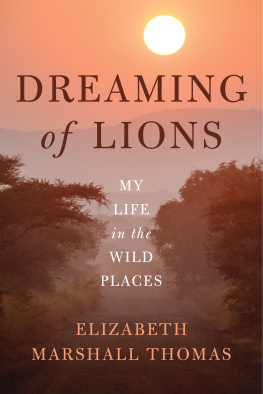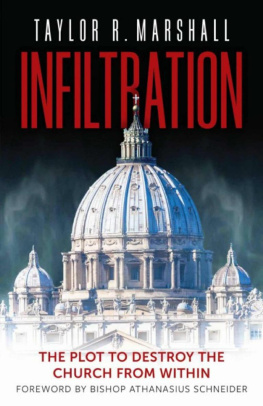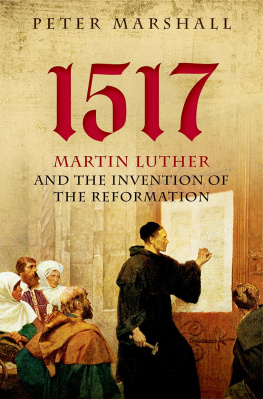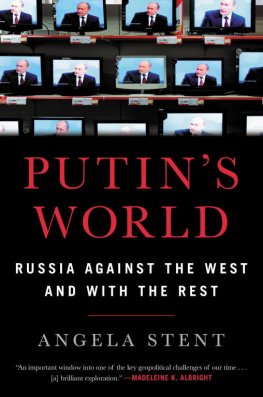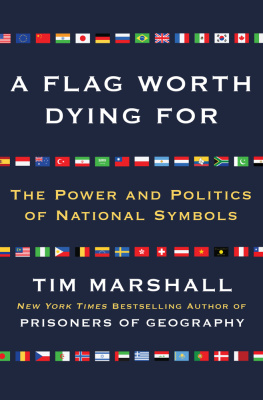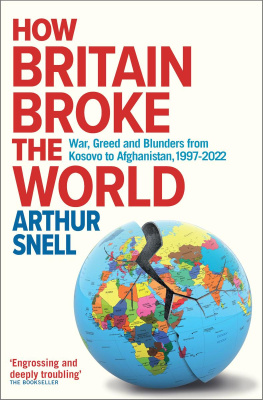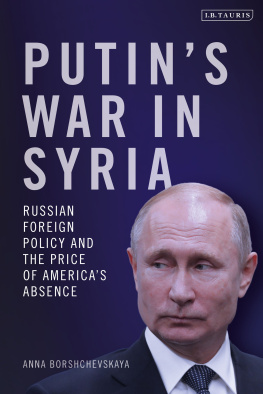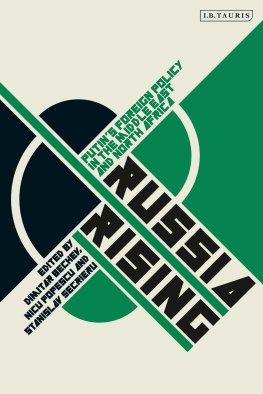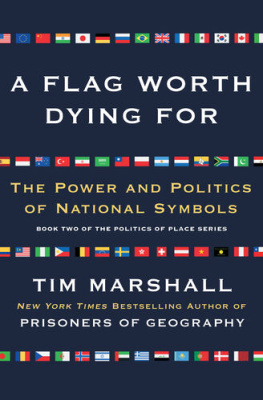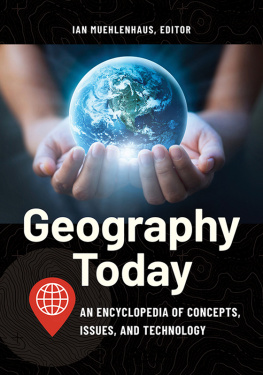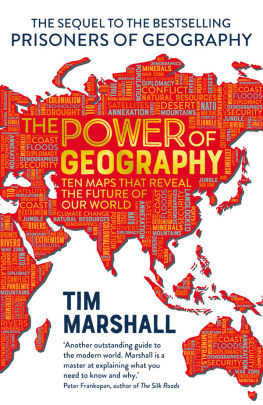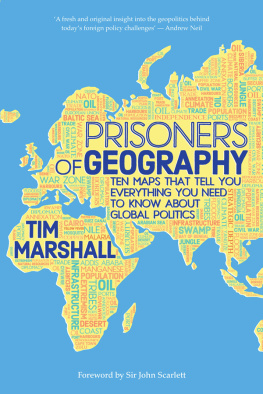More Praise for Prisoners of Geography
In an ever more complex, chaotic, and interlinked world, Prisoners of Geography is a concise and useful primer on geopolitics.
Newsweek
A convincing analysis of Russian geopolitical thinking... Also makes clear the terrible price the world has had to pay because European officials decided to create nation states with borders that completely ignored cultural geography.
The Washington Post
Marshall is excellent on some of the highways and byways of geopolitics.
Financial Times
Fans of geography, history, and politics (and maps) will be enthralled.
Fort Worth Star-Telegram
This is not a book about environmental determinismthe geography of a region is never presented as fatalistic; but it does send a timely reminder that despite technological advances, geography is always there, often forcing the hand of world leaders.
Geographical magazine
Lively and perceptive political and historical analyses are frequent. The chapter on China is excellent; the chapter on Africa combines geography and history in a convincing way; the chapter on Western Europe... is a brilliant narrative of European relations, particularly between France and Germany. The superb chapter on the Middle East makes for a clear indictment of the Sykes-Picot agreements and of their tracing of artificial borders. The chapter on the Arctic is precise and informative... A very lively, sensible, and informative series of country reports in which geography occupies its rightful place along with shrewd historical reminders and political judgments.
Survival: Global Politics and Strategy
Sharp insights into the way geography shapes the choices of world leaders.
The World , the Financial Times news blog
Thank you for downloading this Scribner eBook.
Join our mailing list and get updates on new releases, deals, bonus content and other great books from Scribner and Simon & Schuster.
C LICK H ERE T O S IGN U P
or visit us online to sign up at
eBookNews.SimonandSchuster.com
CONTENTS
To Joanna Simone: Lhistoire de ma viecest toi.
INTRODUCTION
V ladimir Putin says he is a religious man, a great supporter of the Russian Orthodox Church. If so, he may well go to bed each night, say his prayers, and ask God: Why didnt you put some mountains in Ukraine?
If God had built mountains in Ukraine, then the great expanse of flatland that is the North European Plain would not be such encouraging territory from which to attack Russia repeatedly. As it is, Putin has no choice: he must at least attempt to control the flatlands to the west. So it is with all nations, big or small. The landscape imprisons their leaders, giving them fewer choices and less room to maneuver than you might think. This was true of the Athenian Empire, the Persians, the Babylonians, and before; it was true of every leader seeking high ground from which to protect their tribe.
The land on which we live has always shaped us. It has shaped the wars, the power, politics, and social development of the peoples that now inhabit nearly every part of the earth. Technology may seem to overcome the distances between us in both mental and physical space, but it is easy to forget that the land where we live, work, and raise our children is hugely important and that the choices of those who lead the seven billion inhabitants of this planet will to some degree always be shaped by the rivers, mountains, deserts, lakes, and seas that constrain us allas they always have.
Overall there is no one geographical factor that is more important than any other. Mountains are no more important than deserts, nor rivers than jungles. In different parts of the planet different geographical features are among the dominant factors in determining what people can and cannot do.
Broadly speaking, geopolitics looks at the ways in which international affairs can be understood through geographical factors: not just the physical landscapethe natural barriers of mountains or connections of river networks, for examplebut also climate, demographics, cultural regions, and access to natural resources. Factors such as these can have an important impact on many different aspects of our civilization, from political and military strategy to human social development, including language, trade, and religion.
The physical realities that underpin national and international politics are too often disregarded in both writing about history and in contemporary reporting of world affairs. Geography is clearly a fundamental part of the why as well as the what. Take, for example, China and India: two massive countries with huge populations that share a very long border but are not politically or culturally aligned. It wouldnt be surprising if these two giants had fought each other in several wars, but in fact, apart from one monthlong battle in 1962, they never have. Why? Because between them is the highest mountain range in the world, and it is practically impossible to advance large military columns through or over the Himalayas. As technology becomes more sophisticated, of course, ways are emerging of overcoming this obstacle, but the physical barrier remains a deterrent, and so both countries focus their foreign policy on other regions, while keeping a wary eye on each other.
Individual leaders, ideas, technology, and other factors all play a role in shaping events, but they are temporary. Each new generation will still face the physical obstructions created by the Hindu Kush and the Himalayas, the challenges created by the rainy season, and the disadvantages of limited access to natural minerals or food sources.
I first became interested in this subject when covering the wars in the Balkans in the 1990s. I watched close at hand as the leaders of various peoples, be they Serbian, Croat, or Bosniak, deliberately reminded their tribes of the ancient divisions and, yes, ancient suspicions in a region crowded with diversity. Once they had pulled the peoples apart, it didnt take much to then push them against each other.
The River Ibar in Kosovo is a prime example. Ottoman rule over Serbia was cemented by the Battle of Kosovo Polje in 1389, fought near where the Ibar flows through the city of Mitrovica. Over the following centuries the Serb population began to withdraw behind the Ibar as Muslim Albanians gradually descended from the mountainous Malesija region into Kosovo, where they became a majority by the mid-eighteenth century. Fast-forward to the twentieth century and there was still a clear ethnic-religious division roughly marked by the river. Then in 1999, battered by NATO from the air and the Kosovo Liberation Army on the ground, the Yugoslav (Serbian) military retreated across the Ibar, quickly followed by most of the remaining Serb population. The river became the de facto border of what some countries now recognize as the independent state of Kosovo.
Mitrovica was also where the advancing NATO ground forces came to a halt. During the three-month war, there had been veiled threats that NATO intended to invade all of Serbia. In truth, the restraints of both geography and politics meant the NATO leaders never really had that option. Hungary had made it clear that it would not allow an invasion from its territory, as it feared reprisals against the 350,000 ethnic Hungarians in northern Serbia. The alternative was an invasion from the south, which would have gotten them to the Ibar in double-quick time; but NATO would then have faced the mountains above them.
I was working with a team of Serbs in Belgrade at the time and asked what would happen if NATO came: We will put our cameras down, Tim, and pick up guns was the response. They were liberal Serbs, good friends of mine and opposed to their government, but they still pulled out the maps and showed me where the Serbs would defend their territory in the mountains, and where NATO would grind to a halt. It was some relief to be given a geography lesson in why NATOs choices were more limited than the Brussels PR machine made public.
Next page

